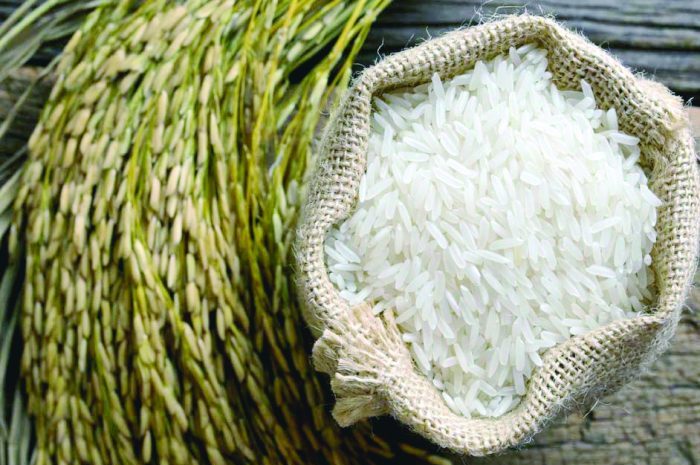When it comes to managing diabetes, one of the primary concerns for individuals is controlling blood sugar levels. Diet plays a crucial role in this management, with a focus on the glycemic index (GI), carbohydrate content, and the impact of different foods on overall glucose control. Among the many sweeteners available, honey is often debated as a potential alternative to refined sugar for people with diabetes. It’s natural, often perceived as healthier, and is frequently touted for its nutritional benefits. But the question remains: Is honey truly a suitable option for those with diabetes?
This article aims to provide a comprehensive overview of honey’s effect on blood sugar, the science behind its composition, and its role in a diabetic diet. We will explore whether honey is safe for diabetics to consume, how it compares to other sweeteners, and the potential benefits and risks associated with incorporating honey into the diabetic lifestyle.
Understanding Diabetes and Blood Sugar Management
Before diving into the specifics of honey, it’s essential to understand the role blood sugar control plays in diabetes. Diabetes is a chronic condition where the body either doesn’t produce enough insulin or is unable to effectively use the insulin it does produce. This results in high blood sugar (hyperglycemia), which can lead to a range of complications over time, including heart disease, nerve damage, kidney failure, and blindness.
For people with diabetes, managing blood sugar is paramount to preventing these complications. This requires careful attention to diet, medication, physical activity, and lifestyle choices. The goal is to maintain blood glucose levels within a target range, avoiding spikes and dips that could affect overall health.
The Role of Sweeteners in Diabetes Management
Sweeteners are an area of concern for many individuals managing diabetes. Foods that are high in sugar, particularly those with refined sugar or high fructose corn syrup, can cause rapid spikes in blood glucose. This is because refined sugars are broken down quickly by the body and absorbed into the bloodstream at a fast rate, increasing the need for insulin to regulate blood sugar levels.
As a result, individuals with diabetes are advised to limit their intake of sweeteners that have a high glycemic index (GI). The glycemic index is a measure of how quickly a carbohydrate-containing food raises blood glucose levels. Foods with a high GI value (such as white bread, sugary snacks, and soda) can cause sharp increases in blood sugar, while low-GI foods (like whole grains and legumes) cause more gradual rises, which are easier for the body to manage.
This brings us to honey—often viewed as a natural, healthier alternative to refined sugar. But does it fit within the guidelines for managing blood sugar levels in individuals with diabetes?
What Is Honey? A Nutritional Breakdown
Honey is a natural substance produced by bees from the nectar of flowers. It is composed primarily of sugars, including fructose, glucose, and small amounts of sucrose, maltose, and other sugars. Honey also contains trace amounts of vitamins, minerals, and antioxidants, depending on the source of the nectar.
The primary sugars in honey are:
Fructose: A monosaccharide (single sugar) that is absorbed more slowly than glucose, which may have a lesser immediate impact on blood sugar.
Glucose: A monosaccharide that is absorbed quickly and can cause a rapid increase in blood glucose levels.
Because honey is made up of both fructose and glucose, its glycemic index tends to be lower than that of pure glucose but higher than that of some other sweeteners like agave syrup or stevia. The specific GI of honey can vary depending on its floral source, but it generally ranges from 45 to 64.
In addition to its sugar content, honey contains small amounts of other nutrients, including:
Antioxidants: Honey, particularly darker varieties, contains compounds like flavonoids and phenolic acids, which are believed to have antioxidant properties. These may help reduce oxidative stress and inflammation, both of which are associated with diabetes-related complications.
Vitamins and Minerals: Honey contains small amounts of vitamin C, calcium, iron, and magnesium, though not in significant quantities when compared to other nutrient-dense foods.
Amino Acids: These are the building blocks of protein, and honey contains trace amounts that contribute to its overall nutrient profile.
Honey and Glycemic Control in Diabetics
One of the primary concerns for people with diabetes is how food affects blood glucose levels. The glycemic index and glycemic load (GL) of a food determine how it impacts blood sugar after consumption.
Glycemic Index of Honey
The GI of honey varies between 45 and 64, depending on the type of honey. This places honey in the moderate GI category—lower than refined sugar (with a GI around 65), but higher than foods like fruits, vegetables, and whole grains. Moderate-GI foods cause a slower rise in blood glucose compared to high-GI foods, which can be beneficial for people with diabetes in terms of avoiding sharp blood sugar spikes.
Glycemic Load of Honey
Glycemic load (GL) is another important measure, as it accounts for the portion size of a food in addition to its glycemic index. Honey has a moderate glycemic load, meaning that consuming small quantities of honey is unlikely to result in a large spike in blood sugar. However, large servings can still contribute to an elevated blood sugar response. For comparison, a tablespoon of honey contains about 17 grams of carbohydrates, which is equivalent to a small serving of carbohydrates for most people.
Potential Benefits of Honey for Diabetics
Antioxidant Properties
As mentioned earlier, honey contains antioxidants, which have been shown to reduce oxidative stress and inflammation. Chronic inflammation and oxidative damage are common concerns for people with diabetes, as they can contribute to complications such as cardiovascular disease, kidney damage, and nerve issues. Some studies suggest that the antioxidants in honey may help improve insulin sensitivity, potentially leading to better blood sugar control.
A Potential Prebiotic
Some research suggests that honey may have prebiotic effects, meaning it could encourage the growth of beneficial gut bacteria. A healthy gut microbiome has been linked to better metabolic health, improved insulin sensitivity, and more stable blood sugar levels. However, more research is needed to fully understand how honey affects the gut and its potential benefits for diabetics.
Wound Healing
Honey has been traditionally used for wound healing, particularly in the treatment of burns and ulcers. Some research indicates that honey’s antimicrobial properties, as well as its ability to promote tissue regeneration, may be beneficial for people with diabetes, who are at a higher risk of developing infections and slow-healing wounds.
Risks and Considerations of Honey for Diabetics
While honey may offer some potential benefits, there are also important risks and considerations that diabetics need to keep in mind.
Blood Sugar Spikes
Despite its relatively moderate glycemic index, honey still contains glucose, which can cause blood sugar levels to rise quickly. For people with diabetes, consuming large amounts of honey or eating it frequently could lead to elevated blood glucose levels. The key here is moderation—like with any sweetener, honey should be consumed in limited amounts, and the effect on blood sugar should be monitored carefully.
Caloric Density
Honey is calorie-dense, providing about 64 calories per tablespoon. While the calories come from natural sugars and not refined sources, the high caloric content means that consuming large amounts can contribute to weight gain, which can complicate diabetes management. Maintaining a healthy weight is crucial for managing type 2 diabetes, and excessive caloric intake from honey or any sweetener could be counterproductive.
Individual Variation
The impact of honey on blood sugar can vary from person to person. Factors such as the type of diabetes, insulin sensitivity, activity levels, and overall diet can all influence how honey affects blood sugar. It’s essential for diabetics to monitor their blood glucose response to honey and adjust their diet accordingly.
Impact on Insulin Sensitivity
Some studies suggest that while honey may improve insulin sensitivity to some extent, it’s not a replacement for other established interventions, such as exercise, medication, and a balanced diet. Honey should not be viewed as a magic bullet for improving diabetes control but rather as a component of an overall healthy eating plan.
Incorporating Honey into a Diabetic Diet
If a person with diabetes chooses to include honey in their diet, it’s essential to do so mindfully and in moderation. Here are some tips for incorporating honey safely:
Limit Portion Sizes: One to two teaspoons of honey can be a reasonable serving size for most individuals with diabetes. This provides some of the potential benefits of honey without causing significant blood sugar spikes.
Balance with Other Foods: Pairing honey with foods that have a low glycemic index or high fiber content can help minimize blood sugar spikes. For example, spreading honey on whole-grain toast or adding it to a yogurt bowl with nuts and berries may provide a balanced, satisfying snack.
Monitor Blood Sugar Levels: People with diabetes should monitor their blood glucose levels before and after consuming honey to assess its impact on their body. This can help them make informed decisions about how much honey they can incorporate into their diet without compromising blood sugar control.
Choose Raw, Unprocessed Honey: Opt for raw, unfiltered honey, which contains more of the beneficial enzymes and antioxidants found in the nectar. Processed honey, which is often pasteurized and filtered, may have fewer nutritional benefits and could contribute to a more significant blood sugar spike.
Conclusion
The question of whether honey is good for diabetics to eat is complex, with both benefits and risks to consider. While honey does offer some potential health advantages, including antioxidants and
a lower glycemic index than refined sugar, it still has the potential to cause blood sugar spikes due to its glucose content. Moderation is key—small amounts of honey can be included in a balanced diet for people with diabetes, but it should not be consumed in large quantities or relied upon as a primary sweetener.
Ultimately, honey is not a cure or treatment for diabetes, but it can be part of a healthy, mindful approach to diet and blood sugar management. As with any dietary decision, individuals with diabetes should consult with their healthcare providers to determine what works best for their unique needs and lifestyle.
Related topics:
How Many Eggs Should a Diabetic Eat a Day?


























